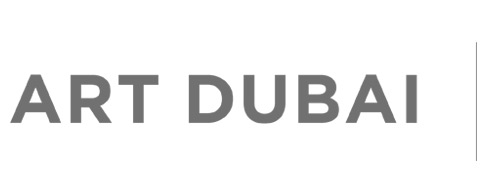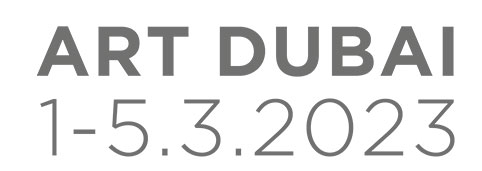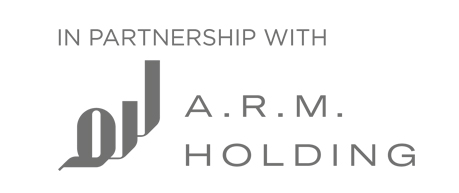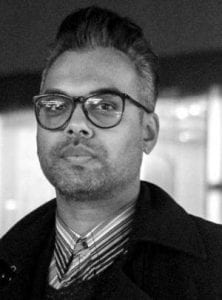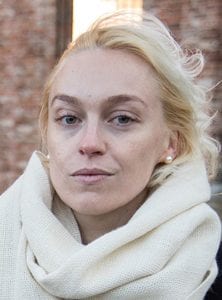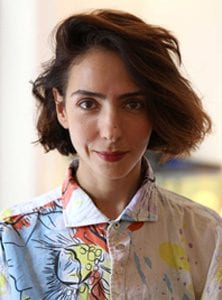Anna and Chris Batchelder are Co-Founders of Bon Education and Bon for Work. Like architects and designers, Bon Education creates education programs for corporates, governments, SMEs and non-profits. Their client portfolio includes organizations such as: Google, Meydan Racecourse, Dubai Institute of Design and Innovation, Godolphin, Jumeirah Group, Microsoft, Expo 2020 Dubai, CISCO, Mubadala and many government entities.
Amir Berbić is a Professor and Chair of Graphic Design at the University of Illinois at Chicago’s School of Design. His work is featured in Design Issues, Visual Communication journal, Print, Graphis, Society of Typographic Arts, World Design Congress, and included in the permanent collection of the Art Institute of Chicago.
Fernanda Brenner is an independent curator. In 2012 she founded Pivô, a nonprofit contemporary art space in São Paulo, where she serves as artistic director. Brenner recently curated the group shows Nightfall at Mendes Wood DM, Brussels along with Erika Verzutti and Milovan Farronato and Black Box at Fundação Iberê Camargo in Porto Alegre, Brazil. She is a contributing editor of Frieze, and her writings have appeared in many publications and catalogues such as Artreview, Mousse, Terremoto, Cahiers D’Art and The Exhibitionist.
Antonia Carver is Director of Art Jameel. She oversees the organisation’s work in education, heritage and the arts, including two new institutions – Jameel Arts Centre, Dubai, and (opening in 2020) Hayy: Creative Hub, Jeddah.
Cécile B. Evans is an American-Belgian artist living and working in London. Her work examines the value of emotions in contemporary society, in particular as they come into contact with technological and physical structures. Recent selected solo exhibitions include Chateau Shatto USA, Tramway UK, mumok Vienna, Castello di Rivoli, Emanuel Layr Galerie and more. Her work has also been included amongst others at Haus der Kunst, Mito Art Tower, Renaissance Society Chicago, the 9th Berlin Biennale, 20th Sydney Biennale, Louisiana Museum and many more.
Maud Houssais was the Research Curator of the exhibition project bauhaus imaginista curated by Marion von Osten and Grant Watson (2017-18). In 2017, she co-curated with Morad Montazami and Yasmina Naji the exhibition Modernités Nomades on the history of the gallery of modern art l’Atelier (1971-91) at Kulte Galery.
Victoria Ivanova is the co-founder of Izolyatsia, Real Flow and Bureau for Cultural Strategies (bux), and is also currently working as a researcher in collaboration with the Serpentine Galleries and London South Bank University. Her core focus is on systemic and infrastructural conditions that shape socio-economic, political and institutional realities. To this extent, Ivanova develops innovative approaches to policy, finance and rights in the sphere of contemporary art and beyond.
Sohrab Mohebbi is a curator at SculptureCenter. He previously was an associate curator at REDCAT where he organized solo exhibitions with Dave Hullfish Bailey, Tamara Henderson, John Knight, and Falke Pisano among others. He is a co-recipient of The Emily Hall Tremaine Exhibition Award for the exhibition Hotel Theory and 2012 recipient of Arts Writers Grant.
Christine Nasserghodsi is the Co-Founder of Mirai, a Dubai-based innovation consultancy and the former Head of Innovation Strategy and UAE Vice President at GEMS Education. Christine founded the UAE’s first maker event in 2012, which has grown into a global year-long programme co-run by GEMS and Singularity University. She is also a doctoral candidate in Organizational Learning at UPenn with a focus on cross-cultural leadership for innovation.
Elvira Dyangani Ose is Director of The Showroom, London. She is affiliated to the Department of Visual Cultures at Goldsmiths and Fondazione Prada’s Thought Council. Previously, she served as Senior curator of Creative Time, Curator of the eighth edition of the Göteborg International Biennial for Contemporary Art and Curator of International Art at Tate Modern.
Nataša Petrešin-Bachelez is an independent curator, writer and editor. She has curated projects and exhibitions for the Times Museum, Guangzhou; Sursock Museum, Beirut; Jeu de Paume, Paris; and Centre Pompidou, Paris. Between 2014 and 2017 she was the Chief Editor of the publishing platform L’Internationale Online. She is Curator of the Contour Biennial 9: Coltan as Cotton.
Rohan Roberts is the Director of the Dubai Science Festival. He is a serial entrepreneur and co-founder of several global organisations including, Intelligent Optimism, Café Scientifique Dubai and Awecademy. He is the Innovation Leader at GEMS Education (the world’s largest private education provider) where he is responsible for promoting Innovation Strategy Planning and Entrepreneurship across over 40 institutions of learning in the UAE and rest of the MENA region.
Nomeda and Gediminas Urbonas are artists, educators, and researchers working at the Art, Culture and Technology Program at MIT in Cambridge, Massachusetts. In addition they are visiting professors at VU in Vilnius, VDU in Kaunas, NABA in Milan, luav in Venice and CAFA in Beijing. The duo combine the disciplines of new media, urbanism, social science, ecology and pedagogy into an integrated artistic practice. Their work has been exhibited at the São Paulo, Berlin, Moscow, Lyon, Gwangju, Busan, Venice biennales; Manifesta and documenta. In 2018 they curated the “Swamp pavilion” – a future learning environment at the 16th Venice Architecture Biennale.
Barbara Vanderlinden is a researcher, art critic, editor, and curator. Most recently, Barbara curated A 37 90 89, Beyond the Museum at MHKA, Museum of Contemporary Art in Antwerp. She served as Professor of Exhibition Studies and Director of the Exhibition Laboratory at the University of the Arts Helsinki in Finland where she organised the Laboratory of Hearing. In 1999 she co-curated Laboratorium with Hans Ulrich Obrist, the seminal exhibition about the studio and laboratory in contemporary art.
Grant Watson is a curator and researcher based in London. Recent projects include How We Behave with If I Can’t Dance, Amsterdam, exploring questions of life practice and politics through filmed interviews conducted in cities including London, Sao Paulo, Mumbai and Los Angeles. Other recent curatorial projects include Practice Internationalat Iniva, London, Iaspis, Sweden, Casco, Holland (upcoming publication 2016); and at Tate Liverpool; and the research collaborations Practice International and Tagore, Pedagogy and Contemporary Visual Cultures, which address questions of the transnational through art.
Tirdad Zolghadr is a curator, writer and the Artistic Director of the Summer Academy at Zentrum Paul Klee in Bern and Associate Curator at KW Institute for Contemporary Art, Berlin.
